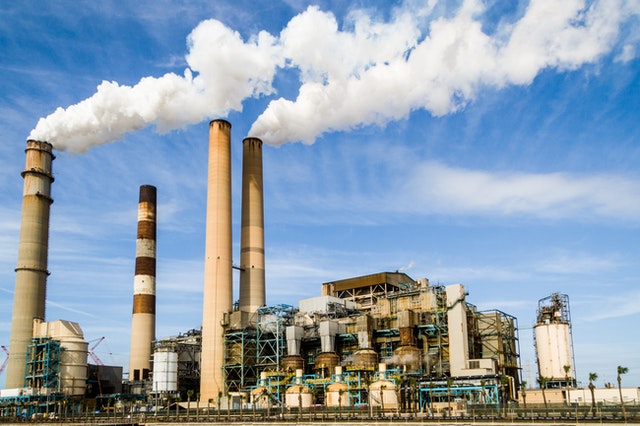
His Excellency, President Hakainde Hichilema, in his maiden speech during the opening of the First Session of the Thirteenth National Assembly on 10th September 2021, outlined the broad policy direction on climate change for the next five years. The President echoed Government’s commitment to strengthening the institutional framework for implementing climate change interventions through the newly formed Ministry of Green Economy and Environment to champion the implementation. The President also highlighted the need to deal with threats posed by climate change to ensure that low carbon and climate resilient development pathways are pursued.
Indeed, a well-managed environment is critical for achieving economic recovery, sustained growth, and improved livelihoods for all people. Nonetheless, waste management remains an issue for Zambia, as for many Sub-Saharan African countries. According to the Zambia Environmental Management Agency’s Environmental Outlook Report of 2017, 68% of waste gets disposed in pits, 25% is dumped on land and only 6% undergoes refuse collection.
Informal disposal of waste creates contamination, health risks and environmental distress. Poor waste management affects health care through contamination of water sources and airborne diseases. Additionally infrastructural challenges such as damaged roads also occur due to blockage of drainage systems, robbing the country of revenue as resources are utilised to clean up the waste.
Poor waste management leads to open incineration of inorganic waste which utilises natural resources such as water, fuel and metal, resulting in the emission of greenhouse gases, particularly carbon dioxide and other pollutants. Greenhouse gases are a major contributor of climate change. According to USAIDs Greenhouse Gas Emissions Factsheet of 2015, Zambia in the last 10 years emitted 125 million tonnes of carbon, which in turn, contributed to frequent droughts that have adversely impacted food, water and energy security as well as the general livelihoods of the poor people.
The manufacturing sector generally contributes to waste generation which destroys the environment. Promoting the 5Rs which are refuse, reduce, reuse, repurpose, and recycle in manufacturing, would entail waste reduction and enhance recycling efforts to minimize landfill waste. The 5Rs generate economic growth and jobs without destroying the natural capital base upon which the economy depends, and help deal with major environmental degradation such as deforestation, climate change, and pollution.
The manufacturing sector in Zambia has recorded some wins with respect to the 5Rs with a number of companies employing them in their businesses. Among many others, Zambia Breweries and Lafarge now Chilanga Cement are championing different sustainability projects. The companies both continue to be major contributors to the Zambian economy through employment creation and contributions to the Treasury.
For instance, Chilanga Cement were the pioneers of e-waste (electric or electronic equipment that’s been discarded e.g computer or television) disposal in Zambia. E-waste is particularly dangerous due to toxic chemicals that naturally leach from the metals inside when buried or burnt. In partnership with local waste companies, Chilanga Cement disposed of all stored e-waste in an environmentally friendly manner. None of their e-waste ends up in landfills or dump sites, thanks to the support of ZEMA and ZICTA.
Additionally, Chilanga Cement under the Geocycle Project came up with a unique process called co-processing, which burns waste in their production line. The Geocycle Project ensures complete traceability of waste in the highest health and safety standards in compliance with regulatory and environment protection. The project offers a local long-term waste management solution that enhances waste management by diverting waste from landfills and waterways.
Zambian Breweries has also been undertaking programs in waste management and recycling popularly known as Manja Pamodzi but have also be conserving and re-using water, as well as undertaking power conservation among others. Zambian Breweries rely on ground water for all their production and thus pursue water stewardship goals to improve water usage, treatment and providing safe water access to communities where they operate. Partnerships with Water Labs, Live Clean Initiatives and the AB in Bev Foundation piloted innovative toilets that use a simple membrane to rapidly evaporate up to 95% of onsite waste without need of external power or water. The innovative technology contributes to adequate management of sanitation.
One might argue that these are all big companies and have the means to do this. However, the methods these companies have employed have triggered down to small and medium enterprises (SME’s). Lampstand is an SME company that manufacture honey. Using the waste products from the honeycomb, Lampstands has been doing some research in order to start manufacturing candles which is an excellent idea to reduce wastage.
The Zambia Association of Manufactures (ZAM) has been promoting sustainability in manufacturing by awarding companies that pursue sustainability efforts in recognition of their various achievements towards sustainable development. Awarding achievements is meant to sensitise the importance of environmental sustainability. Additionally, the efforts are meant to complement the Government’s commitment towards the green economy, kick-started by establishing the Ministry of Green Economy and the Environment. However, more can be done to achieve environmental sustainability through the 5Rs if we embrace research and encourage stakeholder support in manufacturer’s sustainability projects. Remember, sustainability begins with you and me.


